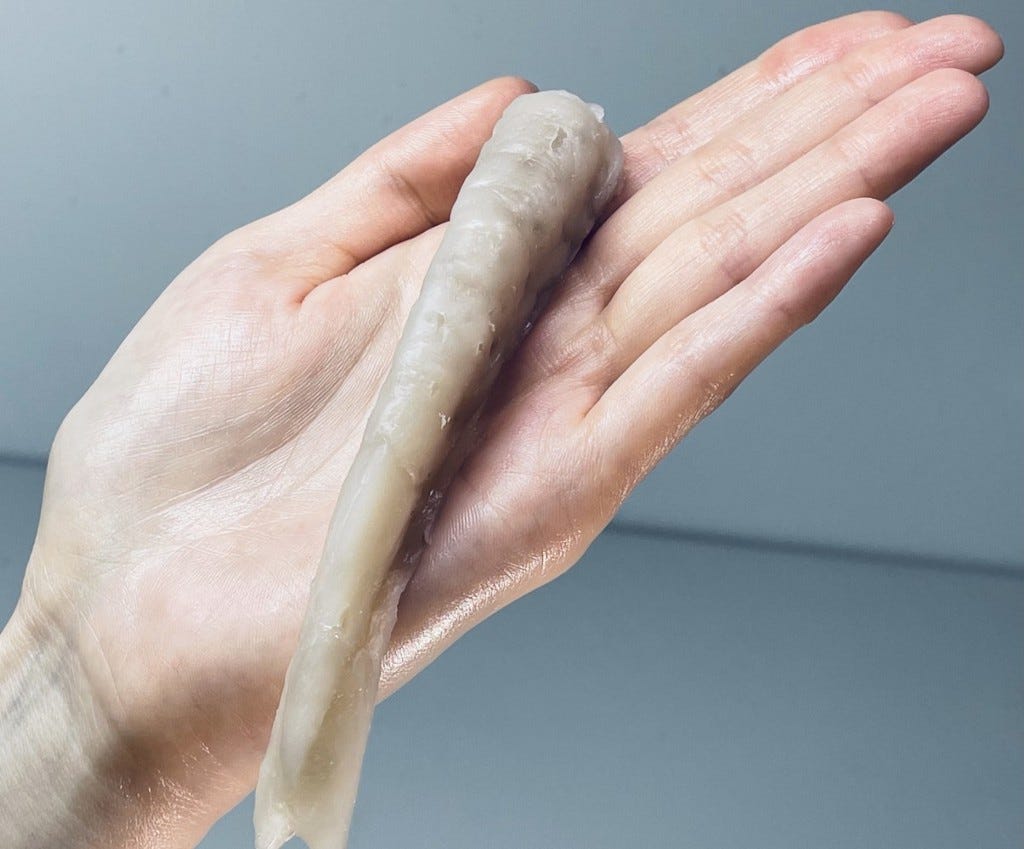One week in a post #27: Walmart & Vertical Farming, Emerging Countries in Alt Proteins, Climate…
One week in a post #27: Walmart & Vertical Farming, Emerging Countries in Alt Proteins, Climate Friendly Snacks, and a LOT of Jerky.
Now that climate beneficial eating is becoming more popular, and a number of individuals and organizations are getting into the space, I feel called to share with a broader audience what I encounter every single day through my personal research and work with organizations such as Future Food and Food for Climate League. Weekly, I share startups I read about, products I tasted, founders I met (and a bit of personal life!). Every single concept I mention will be tracked on a public database we’re populating. The overarching goal is to increase the general interest in this topic, acknowledging that the challenge is too big not to work cooperatively.
My word of the week
Supercomputer. NOUN. A computer with a high level of performance as compared to a general-purpose computer.Food, Climate and Innovation: three highlights of the week
1/ Walmart invest in vertical farming
It got public today that Walmart is investing in vertical farming start-up Plenty and will start carrying its leafy greens in all California stores this year. Walmart’s investment is part of a $400 million round of funding for Plenty led by One Madison Group and JS Capital, with participation from SoftBank Vision Fund. Food and agriculture start-ups attracted a record $22.3 billion in venture funding in 2020 — twice as much as these segments raised in 2019. And the numbers keep on growing.
Vertical farming comes with several key benefits compared with traditional farms. To mention some:
Crops can grow faster and with a larger yield because they rely on synthetic light sources instead of sunlight and aren’t subject to sudden changes of weather.
The crops also can be grown without pesticides, which eliminates runoff that can damage wildlife and soil quality.
Consumers can see longer shelf life for their purchases because crops don’t spend long hours on the back of a truck or endure temperature changes from transportation.
Indoor agriculture also has become a potential solution to unpredictable weather patterns and natural disasters, such as California wildfires, fueled by climate change.
2/ It’s a jerky battle
A sample of the Beyond Meat-PepsiCo jerky product.Source: Amber Criste
Beyond Meat and PepsiCo partnered to launch a vegan jerky snack as part of their Planet Partnership. Rumors say it’s a good product, but still there is a lot we don’t know! What we do know is that they’re not the only ones tackling the jerky market opportunity. Actually, there are quite a it of companies doing so. Conagra Brands Inc. has a line of Gardein-branded jerky made with wheat and soy. Louisville Vegan Jerky has been serving vegan jerky to chew as the best alternative to meat jerky since 2012. Not to mention Eat the Change that is playing with mushrooms, or Solely that uses fruit as the base.
3/ Alt Proteins in the rest of the world
Vegans and flexitarians from emerging markets want their own brands made to suit their own tastes, their own culinary predilections, made with ingredients familiar and geographically adjacent to them. It’s not all just about North America and Europe. There are an increasing number of companies playing in that space coming from different countries. What to watch?
Brazil’s Future Farm just raised a $58M Series C;
South Korean CellMEAT released images of the first-ever cultivated Dokdo shrimp last year;
India ingrowing his presence of Alt Proteins — and GFI is growing there as well;
Chilean AI alt meat startup The Live Green Co has just successfully closed a $7 million funding round to help support expansion;
Startups are popping up across Africa with no shortage of novel alt-protein innovations. Some examples? Mzansi Meat Co., Veggie Victory, De Novo Dairy.
Climate Friendly products of the week
Goodpop
GoodPop makes premium frozen novelties made with clean, plant based, organic and responsibly sourced ingredients without HFCS, GMOs, Refined Sugar or Sugar Alcohol Sweeteners.
Ingredients / Goodpop products use real fruit and fair trade ingredients, and are dairy and gluten free and certified Kosher.
Certified B Corp / Goodpop is a Certified B-Corporation committed to using their product as a vehicle to Do Good: their pops are Non-GMO or Organic supporting the clean food movement. By sourcing Fair Trade ingredients, they support fair wages for our farmers, growers and their communities. GoodPop works closely with local, national and international charities and non-profits.
Packaging / Goodpops cardboard packaging and boxes are recyclable and their wood sticks are biodegradable.
MALK
MALK produces plant-based milk with the fewest and the best ingredients: No fillers, gums, or anything fake.
Nutrition / MALK products do not contain dairy, gums, fillers, oils, or gluten. Their unsweetened beverages contain only 3 ingredients: almond or oat, Himalayan salt and filtered water. All flavors are cold-pressed, preservative-free, and organic, and every bottle contains more than one cup of sprouted organic nuts.
Airly
Airly is makes snack products from climate-friendly crops. They claim to be the “first snack product to empower consumers by printing the carbon footprint right on the package”.
Impact / Each box of Airly’s crackers eliminates between 18 grams and 21 grams of carbon dioxide from the air.
Farming / Airly brings together scientists and innovative farmers to utilize the latest carbon farming practices to grow our oats: no till farmin, planting cover crops, rotating crops, precision digital farming, and more.
Can I help you with the work you’re doing? Please reach out to me here!
One week in a post #27: Walmart & Vertical Farming, Emerging Countries in Alt Proteins, Climate… was originally published in FUTURE FOOD on Medium, where people are continuing the conversation by highlighting and responding to this story.








